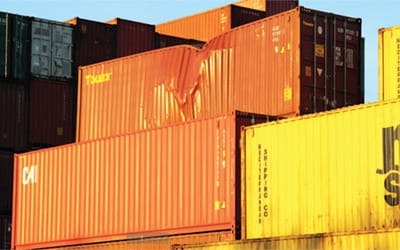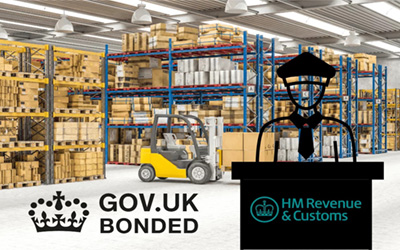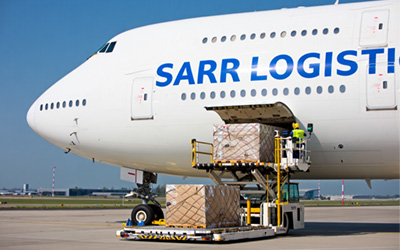The call for a Dedicated Logistics and Supply Chain Minister
The Vital Role of Logistics and Supply Chains
In today’s globalised economy, efficient logistics and supply chain management are crucial for businesses to remain competitive. The movement of goods, raw materials, and finished products across borders and continents is the backbone of international trade and commerce. However, the complexities involved in coordinating these intricate networks often present significant challenges that can hinder economic growth and development.
Supply Chain Bottlenecks: A Persistent Issue
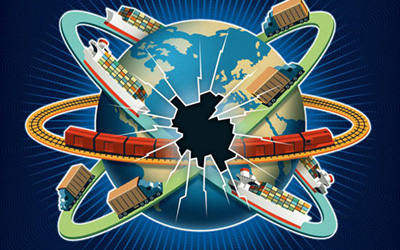 Recent events, such as the COVID-19 pandemic and geopolitical conflicts, have highlighted the vulnerabilities of global supply chains. Disruptions in these networks can lead to shortages, delays, and increased costs, impacting businesses and consumers alike. Addressing these bottlenecks and improving the overall efficiency of supply chains is a pressing concern for governments and industry stakeholders.
Recent events, such as the COVID-19 pandemic and geopolitical conflicts, have highlighted the vulnerabilities of global supply chains. Disruptions in these networks can lead to shortages, delays, and increased costs, impacting businesses and consumers alike. Addressing these bottlenecks and improving the overall efficiency of supply chains is a pressing concern for governments and industry stakeholders.
The Need for Dedicated Leadership and Coordination
While various government agencies and departments currently oversee different aspects of logistics and supply chain management, there is often a lack of cohesive leadership and coordination. This fragmented approach can lead to inefficiencies, conflicting policies, and a failure to address systemic issues effectively.
As the next government takes office, there is a growing call for the establishment of a dedicated Logistics & Supply Chain Minister. Such a position would ensure that the critical issues facing this sector receive the focused attention and resources they deserve.
Responsibilities of a Logistics & Supply Chain Minister
A Logistics & Supply Chain Minister could be tasked with the following key responsibilities:
Policy Development and Implementation: Develop and implement comprehensive policies and strategies to enhance the efficiency, resilience, and sustainability of domestic and international supply chains.
Regulatory Oversight: Coordinate and streamline regulations related to transportation, customs clearance, and cross-border trade to facilitate smoother logistics operations.
Infrastructure Development: Collaborate with relevant agencies and stakeholders to identify and address infrastructure gaps, such as inadequate transportation networks, insufficient warehousing facilities, and outdated technology systems.
Trade Facilitation: Work closely with trade partners and international organisations to harmonise standards, reduce bureaucratic barriers, and promote the seamless flow of goods across borders.
Workforce Development: Address skill gaps and labour shortages in the logistics and supply chain sectors by promoting relevant education and training programs.
 Technology Adoption: Foster the adoption of cutting-edge technologies, such as blockchain, Internet of Things (IoT), and artificial intelligence (AI), to enhance supply chain visibility, traceability, and optimization.
Technology Adoption: Foster the adoption of cutting-edge technologies, such as blockchain, Internet of Things (IoT), and artificial intelligence (AI), to enhance supply chain visibility, traceability, and optimization.
Crisis Management: Develop contingency plans and coordinate rapid responses to mitigate the impact of supply chain disruptions caused by natural disasters, geopolitical conflicts, or other unforeseen events.
By having a dedicated minister responsible for these critical areas, the government can demonstrate its commitment to addressing the challenges facing the logistics and supply chain sectors and ensuring their long-term competitiveness and resilience.
Benefits of a Dedicated Logistics & Supply Minister
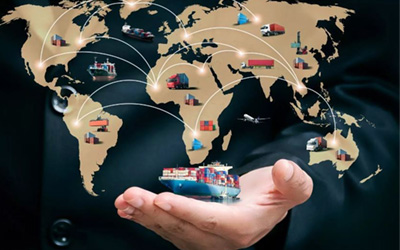
The establishment of a Logistics & Supply Chain Minister could yield numerous benefits for businesses, consumers, and the overall economy:
Improved Efficiency and Cost Savings: Streamlined regulations, enhanced infrastructure, and the adoption of advanced technologies could significantly reduce operational costs and lead times, resulting in increased profitability for businesses and lower prices for consumers.
Enhanced Competitiveness: By addressing supply chain bottlenecks and facilitating smoother logistics operations, businesses can improve their ability to compete in global markets and capitalize on new opportunities.
Economic Growth and Job Creation: Efficient supply chains can stimulate economic growth by enabling businesses to expand their operations and reach new markets. Additionally, investments in infrastructure and technology adoption can create new employment opportunities within the logistics and supply chain sectors.
Environmental Sustainability: A dedicated focus on optimizing supply chains can lead to reduced greenhouse gas emissions, improved energy efficiency, and the adoption of more sustainable practices throughout the entire logistics process.
Resilience to Disruptions: With contingency plans and rapid response mechanisms in place, businesses and consumers can better withstand the impacts of supply chain disruptions, minimizing economic losses and ensuring continuity of operations.
International Trade Facilitation: By harmonizing standards and reducing bureaucratic barriers, a Logistics & Supply Chain Minister can promote smoother cross-border trade, fostering economic integration and strengthening global partnerships.
Conclusion: A Call for Dedicated Leadership
As the world becomes increasingly interconnected and supply chains grow more complex, the need for dedicated leadership and coordination in the logistics and supply chain sectors has become paramount. The establishment of a Logistics & Supply Chain Minister in the next government can provide the focused attention and resources necessary to address the challenges facing these critical areas.
By streamlining regulations, investing in infrastructure, promoting technology adoption, and facilitating international trade, a dedicated minister can help businesses enhance their competitiveness, drive economic growth, and ensure the resilience of supply chains in the face of future disruptions.
Ultimately, efficient logistics and supply chain management are not just concerns for businesses but are crucial for the overall well-being of societies and economies. As the next government takes office, the creation of a Logistics & Supply Chain Minister should be a top priority, reflecting the vital importance of these sectors in driving sustainable development and prosperity.
UKWA the voice of warehousing has called for dedicated government minister, along side Green Fleet and Logistics UK. If we all make enough noise who knows what changes will happen. if you would like to voice your opinion please feel fee to contact us we are always happy to here from our audience.






